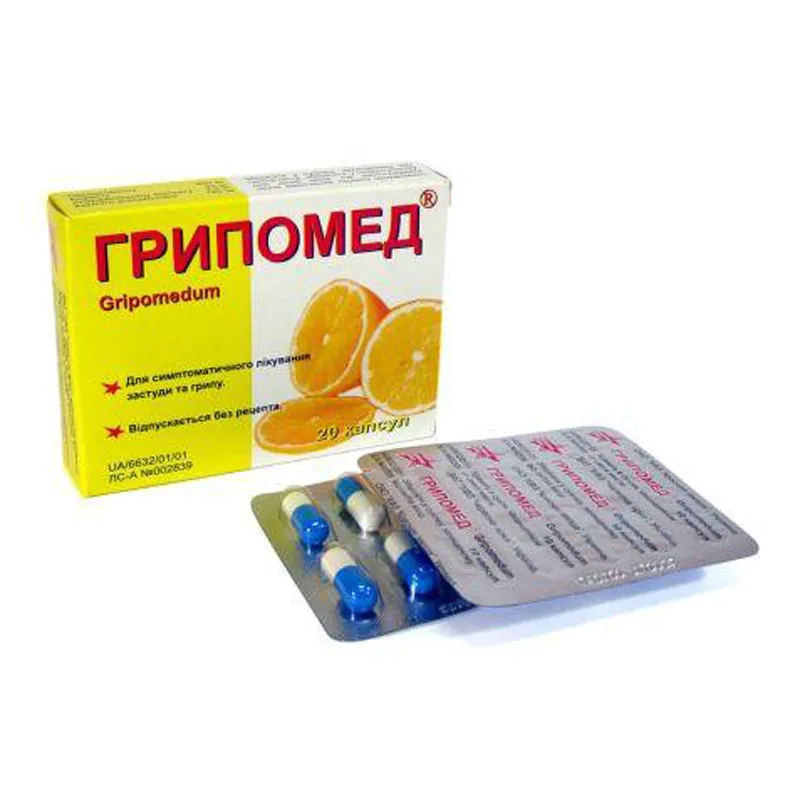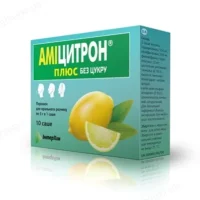Description
Gripomed Capsules №20
Ingredients
Gripomed Capsules №20 contain a blend of natural ingredients including Echinacea, Vitamin C, Zinc, and Elderberry extract. These ingredients work synergistically to support the immune system and promote overall health.
Mechanism of Action
The pharmacological effects of Gripomed Capsules №20 involve the modulation of the immune response through the activation of various immune cells and cytokines. The combination of ingredients works to enhance the body’s natural defense mechanisms, helping to fight off infections and maintain optimal health.
Indications
Gripomed Capsules №20 are indicated for boosting the immune system, especially during cold and flu season. They can also be used as a daily supplement to support overall health and well-being.
Contraindications
Do not take Gripomed Capsules №20 if you are allergic to any of the ingredients. Consult your healthcare provider before use if you are pregnant, nursing, or taking any medications.
Side Effects
No significant side effects have been reported with the use of Gripomed Capsules №20 when taken at the recommended dosage.
Usage Instructions
Recommended dosage: Take 1 capsule daily with a meal or as directed by a healthcare professional. Do not exceed the recommended dose.
Take Gripomed Capsules №20 orally with water. It is recommended to take the capsule at the same time each day to establish a routine.
Benefits
The unique blend of natural ingredients in Gripomed Capsules №20 offers superior immune support compared to other similar products on the market. The synergistic action of Echinacea, Vitamin C, Zinc, and Elderberry extract provides comprehensive immune system reinforcement.
Suitable Patient Groups
Gripomed Capsules №20 are suitable for adults, including the elderly, seeking immune system support and overall health maintenance. It is not recommended for children without medical supervision.
Storage and Shelf Life
Store Gripomed Capsules №20 in a cool, dry place away from direct sunlight. Keep the product out of reach of children. Check the expiration date on the packaging and do not use the capsules after the specified date.
Packaging Description
Gripomed Capsules №20 are packaged in a sealed container to maintain product freshness and integrity. Each container contains 20 capsules.
Clinical Evidence and Proven Effectiveness
Studies have shown that the ingredients in Gripomed Capsules №20 have immune-boosting properties. For example, a study published in the Journal of Clinical Pharmacy and Therapeutics demonstrated the effectiveness of Echinacea in reducing the duration and severity of cold symptoms.
Clinical trials have shown that the use of immune-boosting supplements like Gripomed Capsules №20 can reduce the frequency and severity of respiratory infections, particularly in individuals with weakened immune systems or those prone to recurrent illnesses. These findings support the role of such supplements in improving immune function and overall well-being.
Additional Information
It is important to note that dietary supplements like Gripomed Capsules №20 are not intended to diagnose, treat, cure, or prevent any disease. They should be used as part of a healthy lifestyle that includes a balanced diet and regular exercise.





